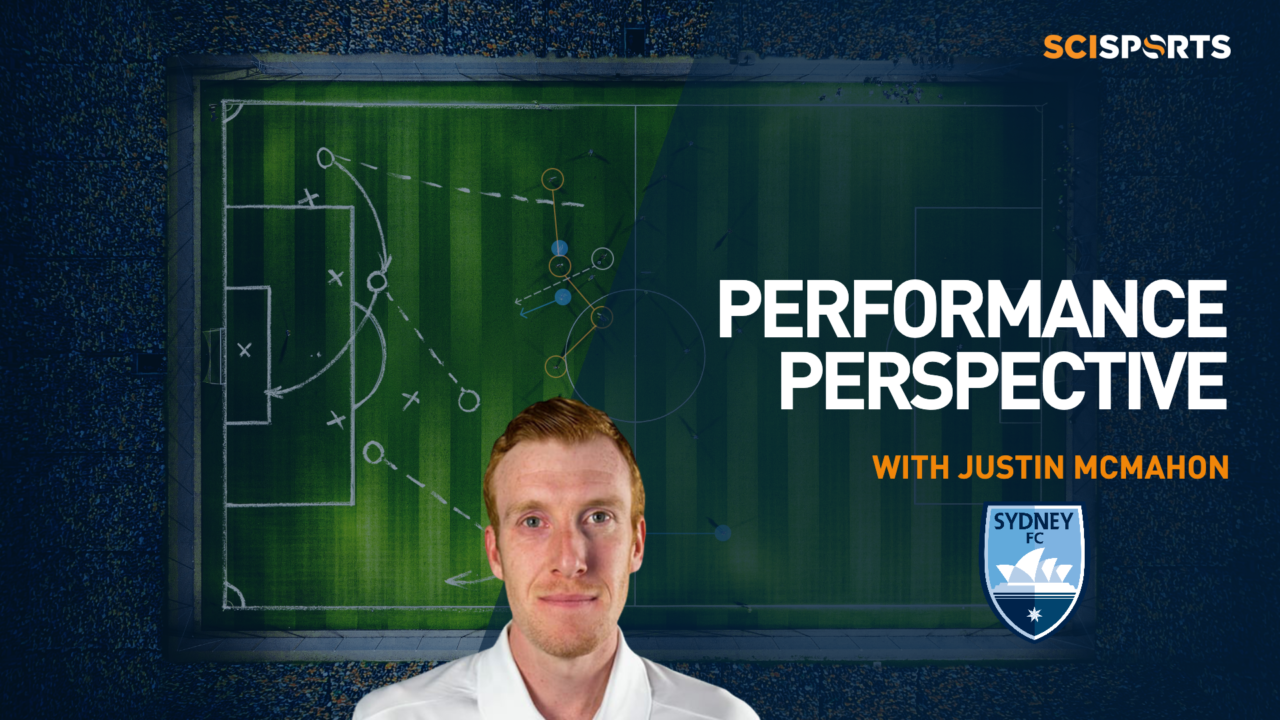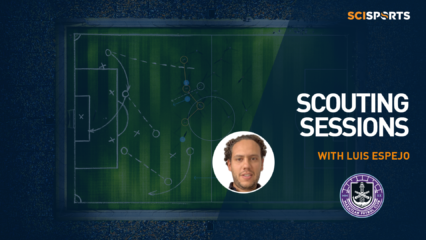
Performance Perspective is an online series brought to you by SciSports that puts the spotlight on industry-leading analysts and key decision-makers within professional football.
Within the performance analysis field, the industry has faced a number of era-defining changes in the past decade. A rise in data-driven analysis has helped streamline processes in a highly demanding profession that requires accuracy and attention to detail.
Throughout this series, we will be talking to people within the football industry who have a background in performance analysis.
In this post of Performance Perspective, we speak with Justin McMahon who is Head of Football Analysis at Sydney FC. He discusses his passion for the game, challenges for the modern day analyst and more.
ENTERING PROFESSIONAL FOOTBALL IN AUSTRALIA
McMahon’s career within the professional game was always going to be a product of his passion for football. Growing up as a passionate fan in Australia, he would often wake up in the middle of the night to watch Europe’s best on the biggest stage.
“Football had been a passion of mine for a long time, but I was never going to be good enough to make it as a professional player. I remember making the decision in my early teens that I wanted to become a coach. I would wake up at 4am to watch Champions League matches and take tactical notes before going to school.”
Since studying Exercise and Sports Science at university, McMahon has since gone on to work within several football departments including in the A-League and national teams.
“After completing my university thesis on in-game decision making analytics I was asked to meet with then Western Sydney Wanderers Head Coach for coffee. They were preparing for their Asian Champions League Final at the time, so I wrote an opposition report for them and after the final I was offered a role with the team.
“Since then I have worked with Football Australia in the under-20s and under-23s national teams, the Central Coast Mariners and now Sydney FC.”
DATA USAGE AT SYDNEY FC
As Head of Football Analysis at Sydney FC, data is a significantly important tool that is used within virtually all of McMahon’s processes. One aspect that he points out here is that the role of analysts within Australian football includes a wide variety of responsibilities.
“The role of an analyst in Australia is more all-encompassing than you would typically see elsewhere. My role at Sydney FC covers everything from opposition and matchday analysis to scouting and recruitment. In essence, anything video or data related falls under my umbrella.
“Naturally, data plays a huge role in my day-to-day work. We use data in all our workflows, but also as an investigative tool to find new and innovative ways to improve. For instance, I’ve always seen performance analysis and recruitment as linked. The nature of our roles here means that we’re across both and there is no separation of departments.
“We put a lot of time into our presentations to make them as clear and precise as possible. Ultimately the most important communication we have as a staff is with the players.”
PERFORMANCE ANALYSIS IN A-LEAGUE FOOTBALL
With a number of years experience in the professional game, McMahon has seen a wide range of advancements from an analytical perspective. Performance analysis, in particular, has been a hotbed of change with data-driven concepts becoming used more widely.
“The biggest change I have noticed since starting as an analyst is the mainstream adoption of data as a part of the game. We now see metrics such as xG becoming part of an everyday football fan’s vocabulary.
“In Australia specifically, there has been a massive shift in the adoption of analysis amongst the A-League teams and now in the NPL. In the space of a few years we have gone from only having a few analysts across the league to seeing almost every team have a full-time role, with many having multiple analysts.”
Looking towards the future, McMahon adds that he thinks the analyst role will continue to increase in value.
“I can only see the role of analysis becoming bigger, especially here. Some of the technologies that were previously unattainable due to financial or infrastructural limitations have become more viable. The next step in Australia is larger investment in data.”
TRANSLATING MESSAGES TO COACHING STAFF
One of the most important roles for any member of technical staff is being able to relay messages to coaches. Hours and hours can go into boiling down just one short message in a pre-match team meeting. In McMahon’s view, having a receptive group of coaches makes the task all the more effective.
“I’m very fortunate to work with a coaching staff who are open-minded when it comes to analytical concepts, so I’m afforded the freedom to present conceptual ideas for discussion.
“Every football team has its own internal vocabulary, so it’s important that concepts are presented in a way that is specific to our philosophy. The most important part is how ideas and information are translated to players.”
In any analysis role, there is a whole host of unseen work that may not even be presented to a player. Nevertheless, delivering just one match-winning message after hours of research is worth the time and effort. As McMahon concludes, giving players the correct information in the most concise way is of great importance.
“We sometimes joke about the amount of hours of work that go into each minute we present in team meetings, but the reality is that no matter how much time we spend analysing an opponent, all that matters ultimately is the understanding of the players on the pitch. The way information is presented in that comparatively small window needs to be as clear and precise as possible.”
RECRUITMENT
RECRUITMENT

PERFORMANCE ANALYSIS
PERFORMANCE ANALYSIS







